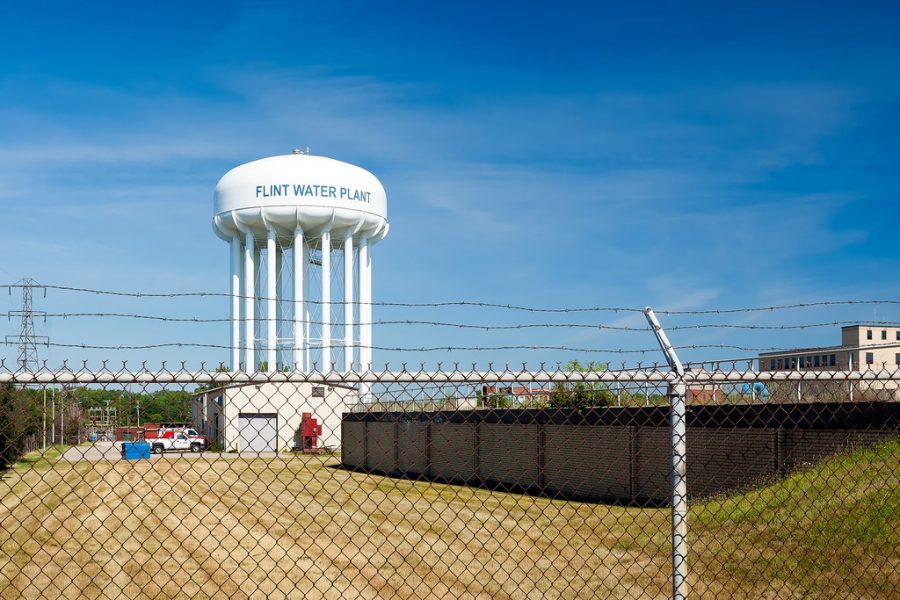The road to clean water
Fed up with the water crisis, 1,700 people filed a class action suit against the EPA. Many were affected by the high levels of lead present in the water.
April 5, 2017
What started as an innocent way to save money has turned into a long road for the city of Flint, Michigan. After a 3 year battle for clean water, a class action suit was filed on January 30 against the EPA by 1,700 individuals affected by the crisis. On March 17, the EPA awarded 100 million dollars to Flint for drinking water upgrades. The Flint water crisis began in April of 2014 when the city switched its water supply from Detroit Water and Sewerage Department to the Flint river. The river has always had a reputation for being dirty. Soon after the switch, residents complained that their water smelled weird and tasted funny.
Researchers at Virginia Tech found the water to be highly corrosive. Many service lines to Flint are made of lead, and the harmful element leaked into homes of the city. E Coli and total coliform bacteria were also detected in the water. The city issued an advisory encouraging residents to boil their water before use. By January of 2015, Flint was found to be in violation of the Safe Drinking Water Act because of the level of TTHM present in the water. The EPA was notified of the lead problem in April of 2015. Studies were done on children and found that children consuming Flint’s water had elevated blood lead levels. In December of 2015, Flint Mayor Karen Weaver issued a state of emergency. Even after the city switched its water supply back to the Detroit water supply, the damage was already done. Levels of lead were still elevated in the city’s drinking water.
By January of 2016, President Obama and Michigan Governor Snyder also declared a state of emergency. FEMA then stepped in to provide resources and equipment to the people affected. On January 21, the EPA issued an emergency order to take action on the water crisis. In total, nine state employees were charged in the case. Junior Dariana Valencia commented, “I cannot believe how long the battle for safe water in Flint has lasted.”
In January of 2017, the water finally tested below the federal limit for lead. On March 28, a federal judge approved a 97 million dollar settlement, where the state of Michigan agreed to replace pipes affected by the water. The state will cover the cost of replacing water lines for at least 18,000 households by 2020.












